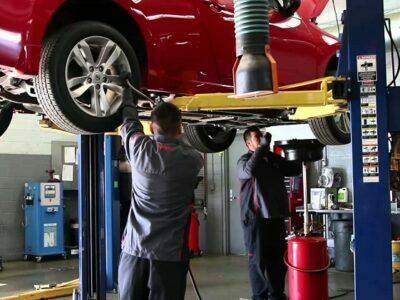Car accidents are commonplace in our society, and whenever they occur, motor vehicle insurance helps protect our finances. Today, almost every country requires drivers to have some liability coverage against car accidents, theft, vandalism, and personal injury. The level of protection an insurance policy provides is dependent on the amount of coverage you buy. What’s more, it’s always best to choose a reputable insurer that handles every covered claim quickly and efficiently. This article highlights three critical questions you need to ask your insurer before buying car insurance.
Table of Contents
1. What auto policy is right for me?
This is one of the fundamental questions anyone looking to get an auto insurance policy needs to ask. Although costly, car insurance is a necessary expense. You can get the best protection for your vehicle without breaking the bank to do so. When looking for comprehensive insurance for your vehicle, you need to figure out how much coverage you need. The benchmark in many developed countries is third-party liability coverage to cover any injuries or damage you cause in an auto accident.
A typical car insurance policy is a combination of different types of insurance. The most common ones that every vehicle owner needs to have include collision coverage, personal injury protection, comprehensive coverage, and uninsured/underinsured motorist coverage.
The type of policy you buy determines how much coverage you get. Like in most places, drivers in New South Wales require Compulsory Third Party insurance (CTP) or Green Slip before their vehicle registration can be processed. CTP provides adequate cover for property damage, personal injury, and other third-party liabilities. The good news is that sites like iSelect have made finding auto insurance providers relatively straightforward.
By way of example, if you live in New South Wales, you don’t have to spend hours on Google searching for “car insurance NSW.” Simply pop that keyword into iSelect’s comparison tool to find the best CTP insurers. Chances are that you may find a car insurance company willing to offer you a significant discount on the type of coverage you choose.
2. Does the insurance policy cover other drivers of the vehicle?
If you decide not to ask your insurer this question, it could raise a lot of concern when filing claims. There’s no way in the world that another person won’t drive your car. If the person gets involved in a car accident, you won’t receive any payments if your policy doesn’t cover accidents caused by another driver.
In general, most auto insurance policies cover drivers who are listed on the policy. That way, it’s easier to prove insurable interest to the insurance company. If the car insurance policy doesn’t cover third-party drivers, consider getting a non-owner car insurance policy for members of your household that drive your vehicle.
Non-owner car insurance bears a striking resemblance to auto liability insurance. This type of insurance implies that the driver either borrowed or rented the car from the rightful owner. It can cover third-party liabilities and repair costs of at-fault accidents.
3. Is there a deductible amount?
Nine times out of ten, insurance companies cover a specific amount of the liability while the customer takes care of the rest. Most people don’t know that a car insurance policy comes with a deductible amount to be paid after an accident. For the most part, they realize it when filing claims.
Auto insurers require their customers to set a deductible amount payable when an accident occurs. Some insurance companies explicitly demand that the customer pays the deductible in full before settling a claim. Most times, cheap auto insurance policies come with higher deductibles.
The higher the premium, the lower the deductible. Increasing your deductible is a smart way to save money on car insurance premiums. Learn more about Buying Car Insurance at https://www.site-reference.com/
Before buying any car insurance policy, ask your broker or insurance agent if you’ll be required to pay a deductible. If yes, find out the amount so you don’t get blindsided should an accident happen.



















Comments